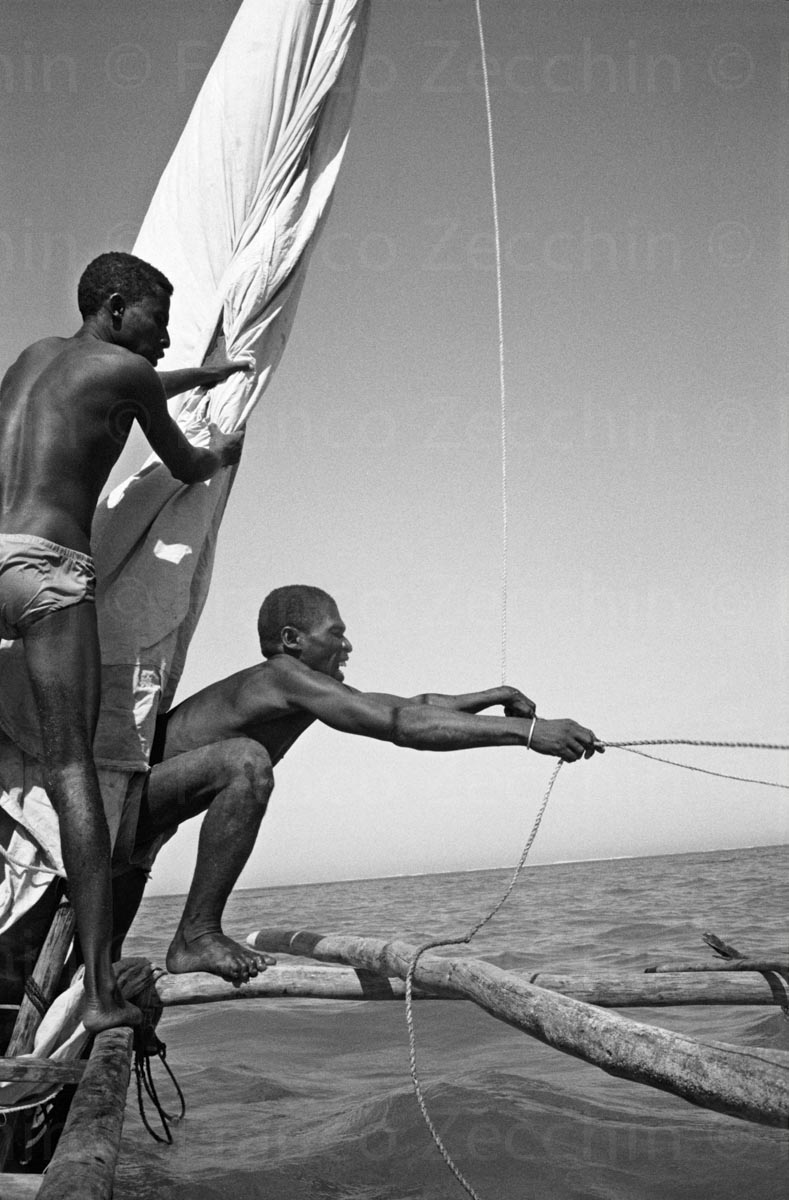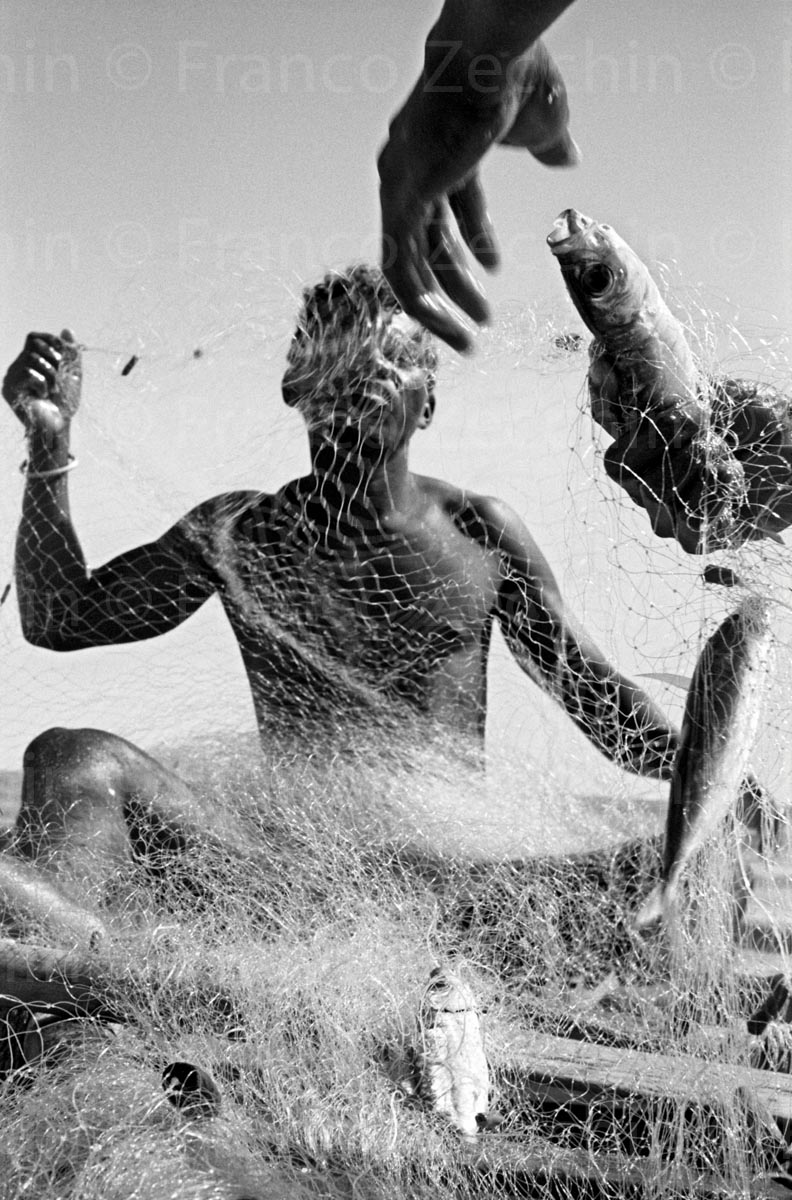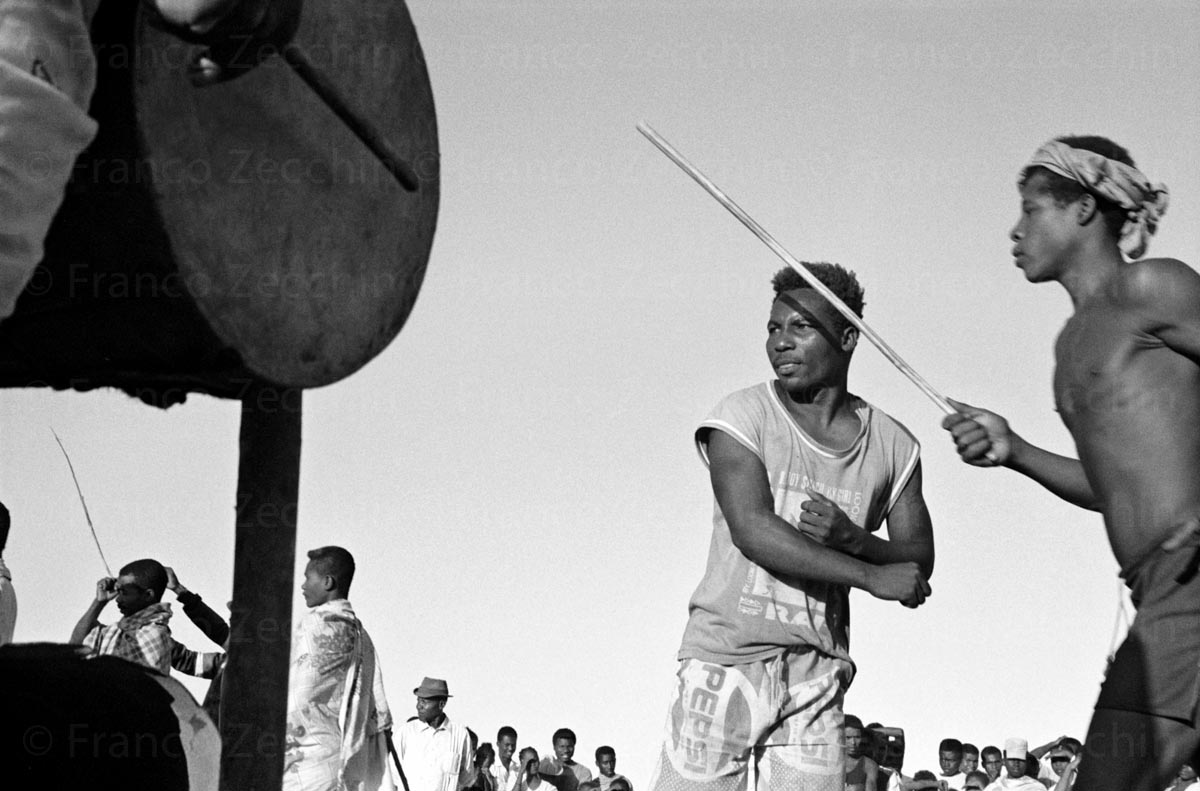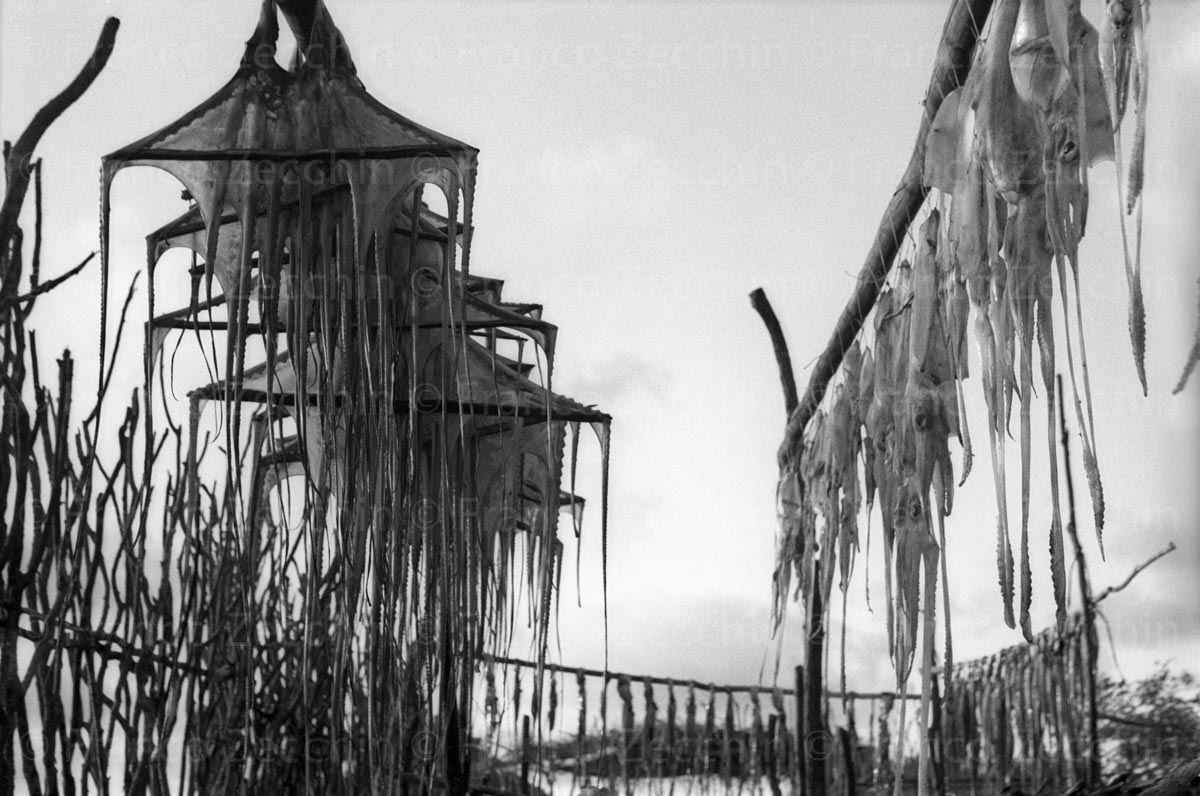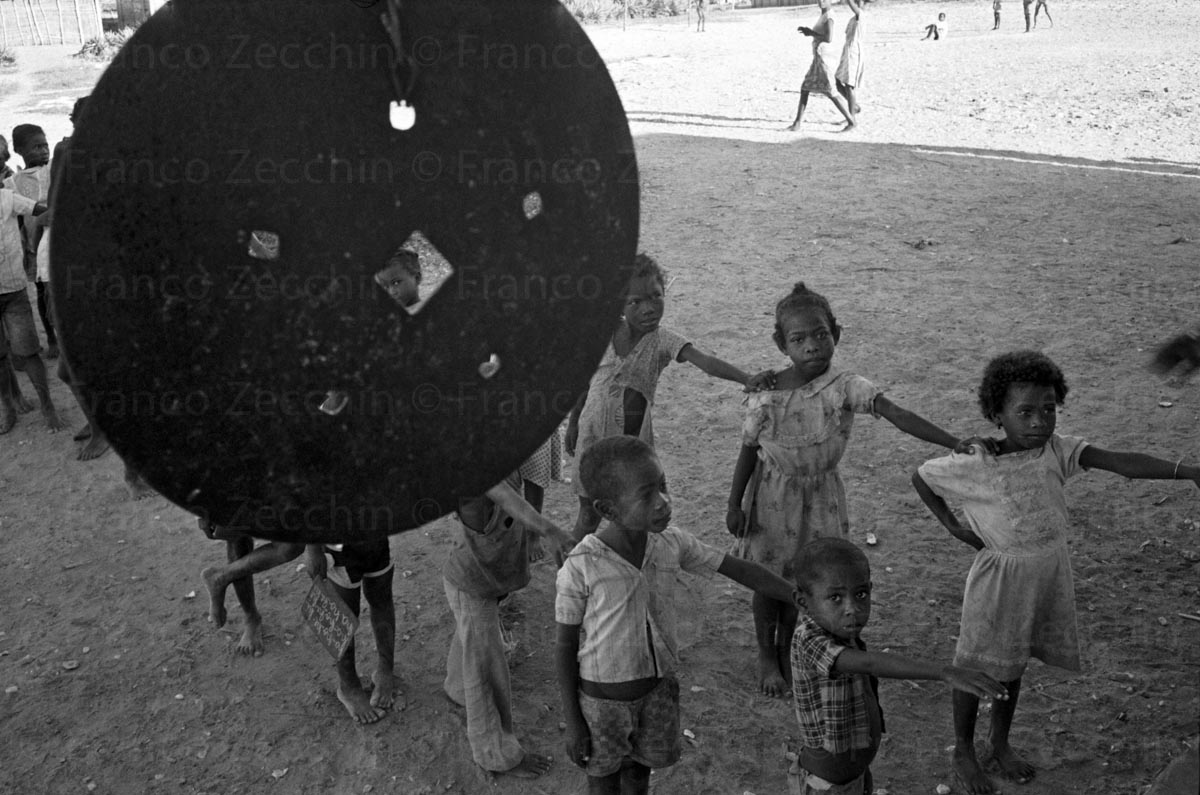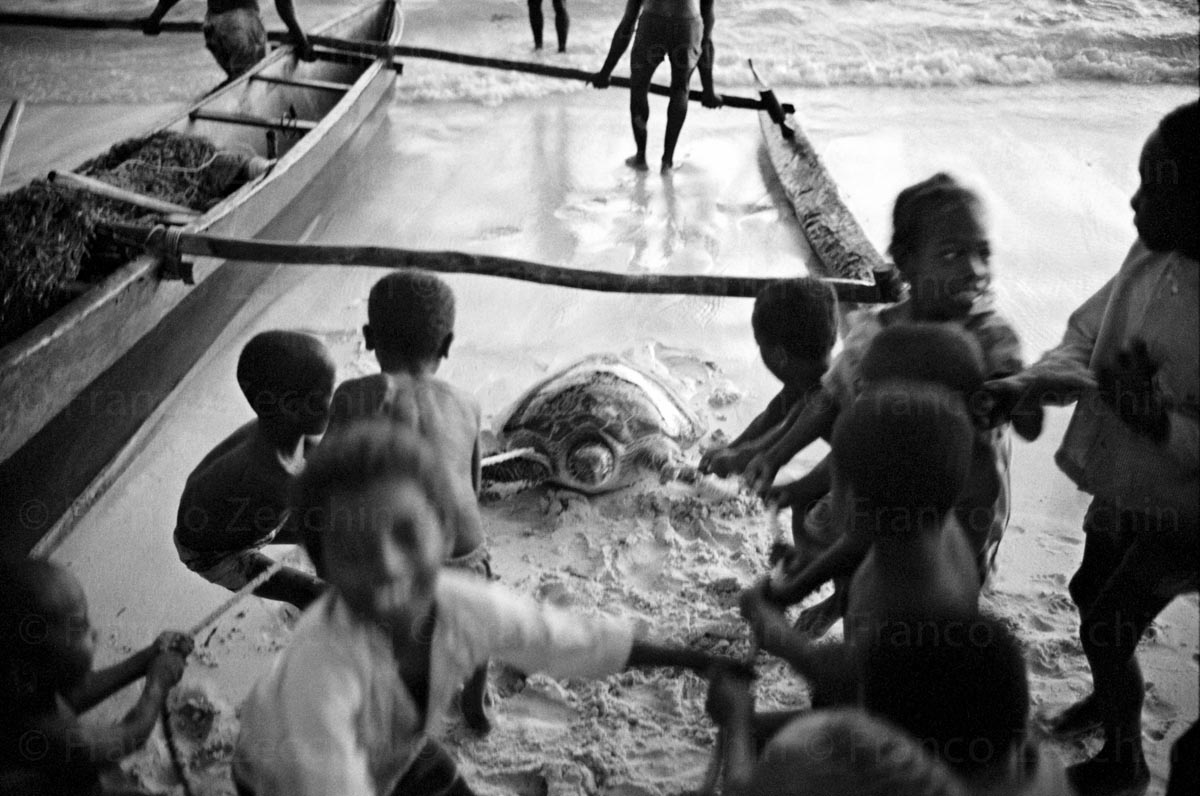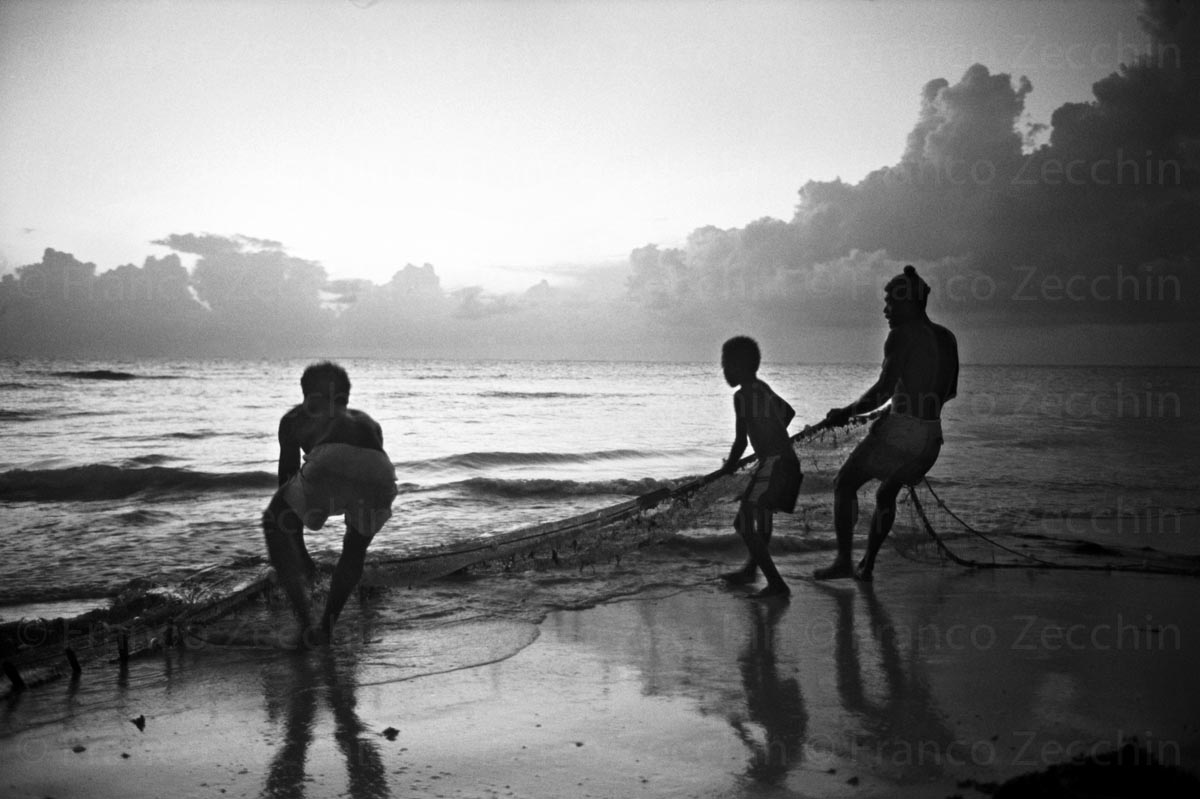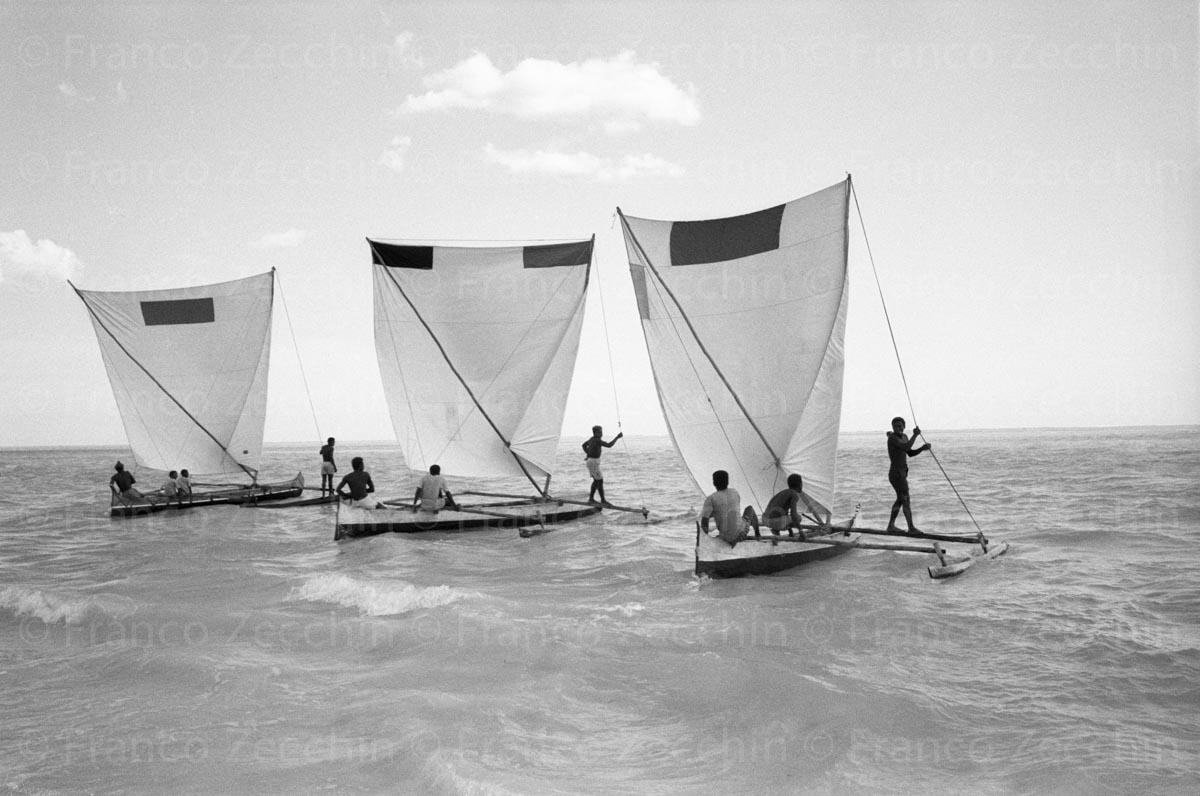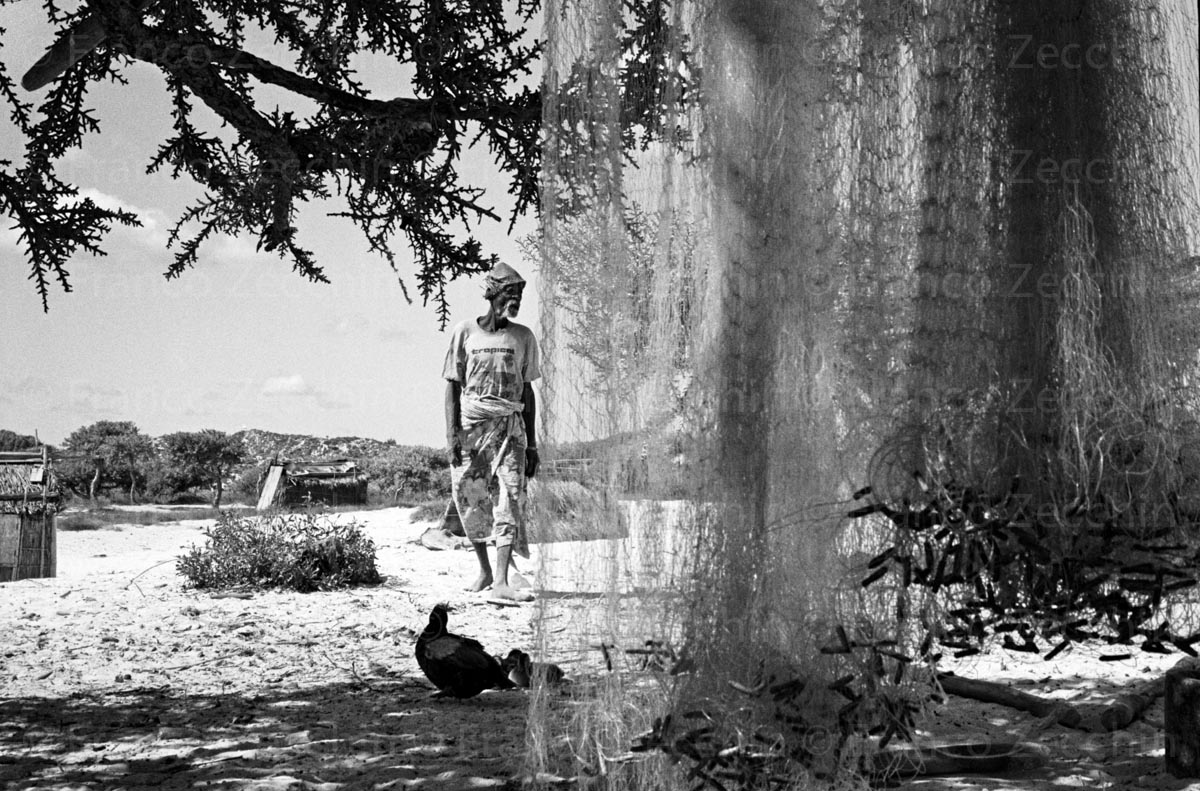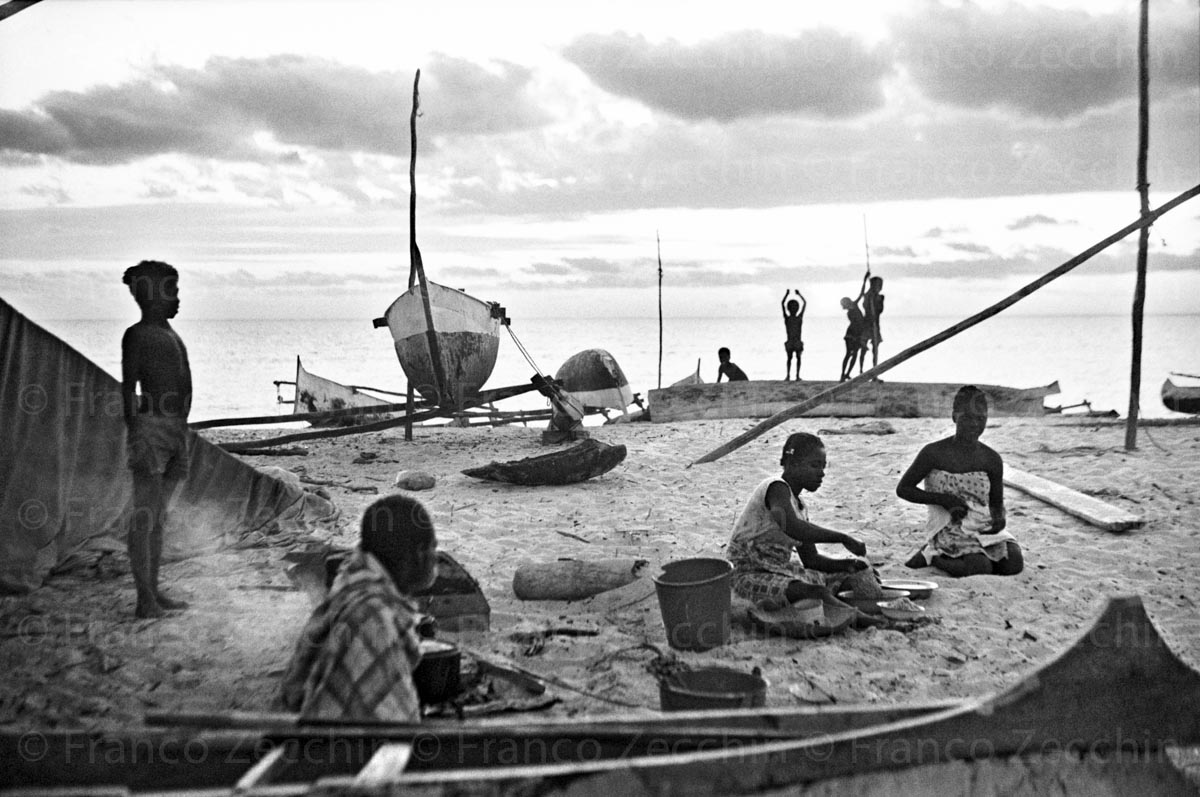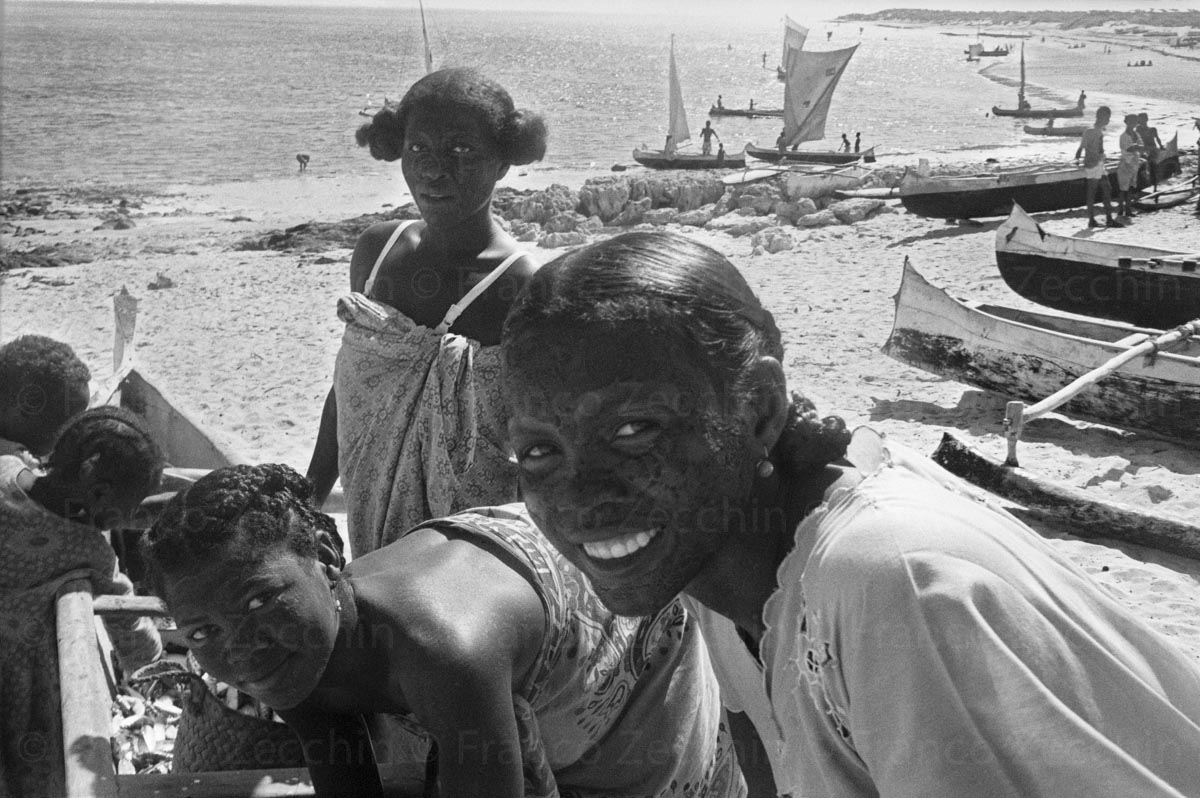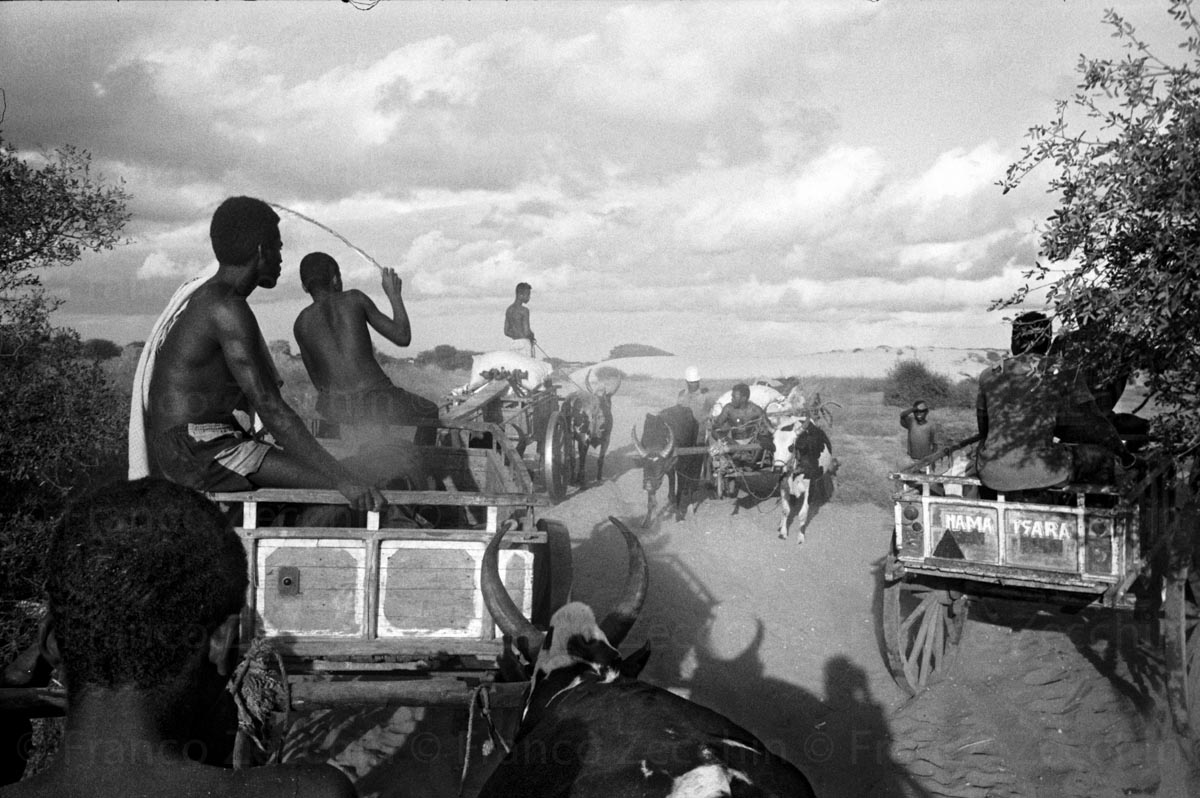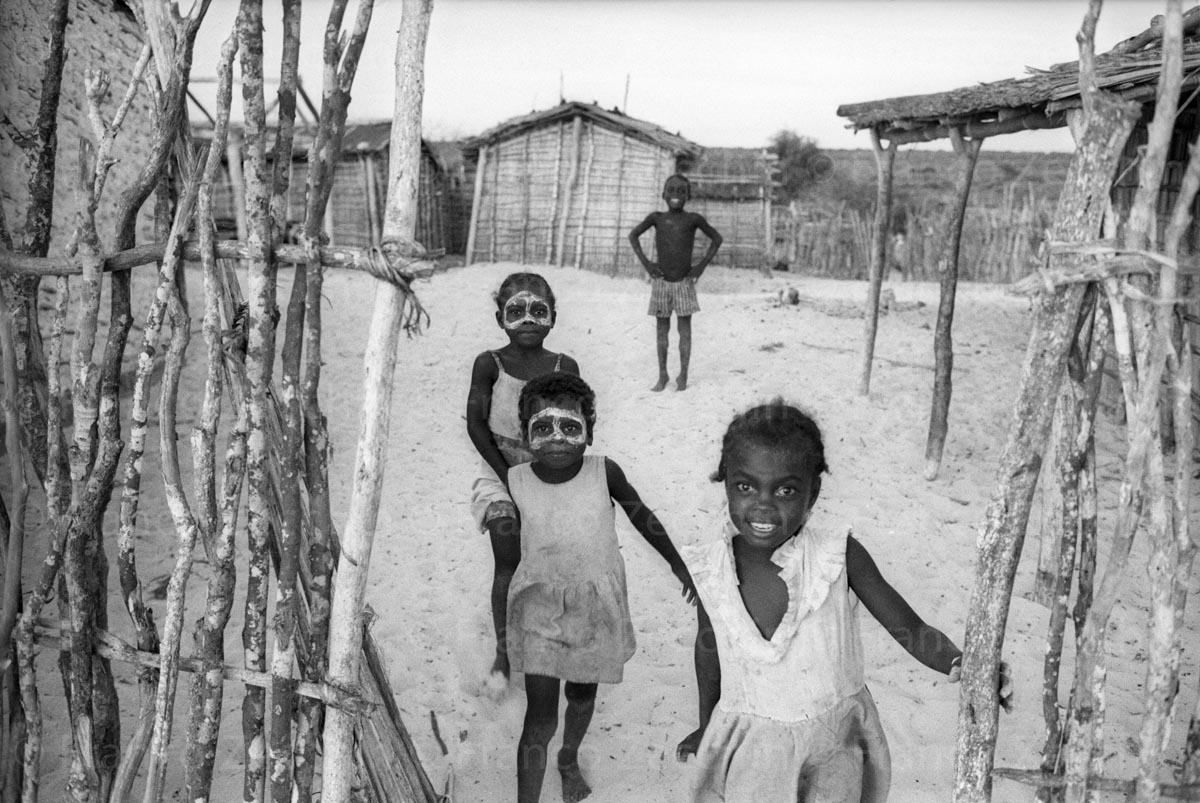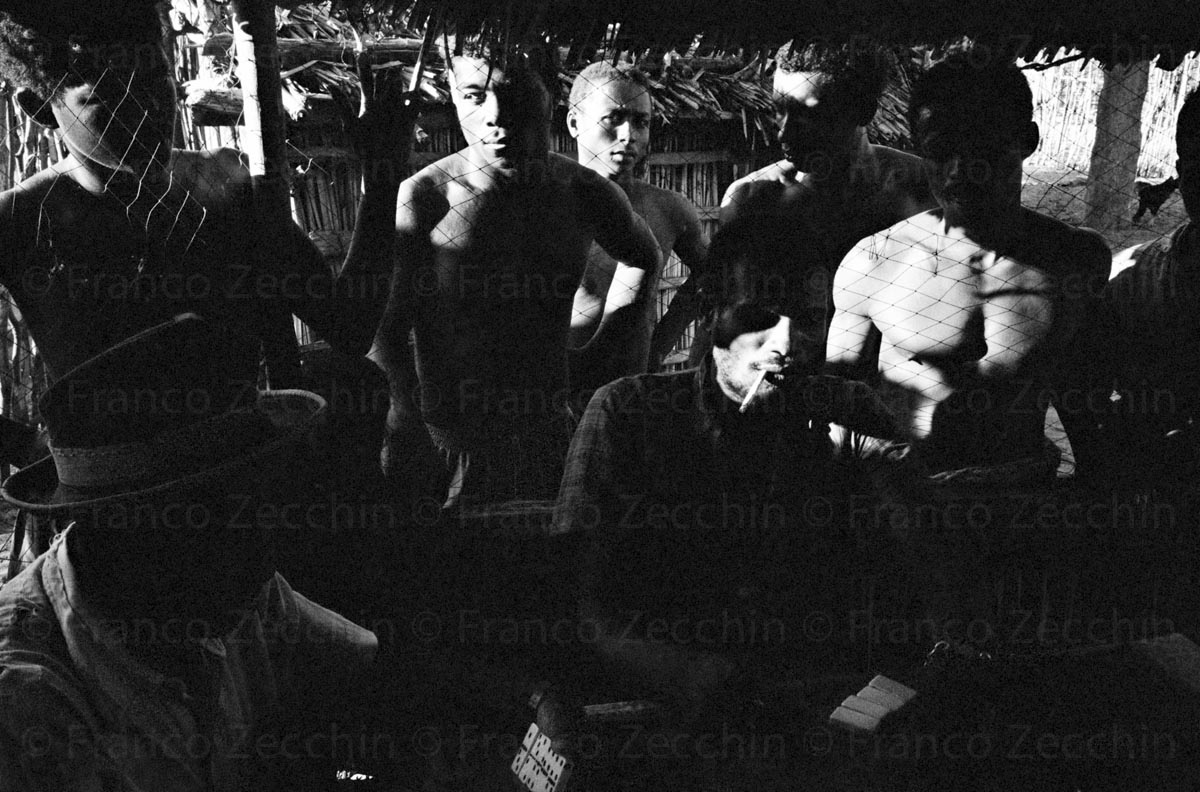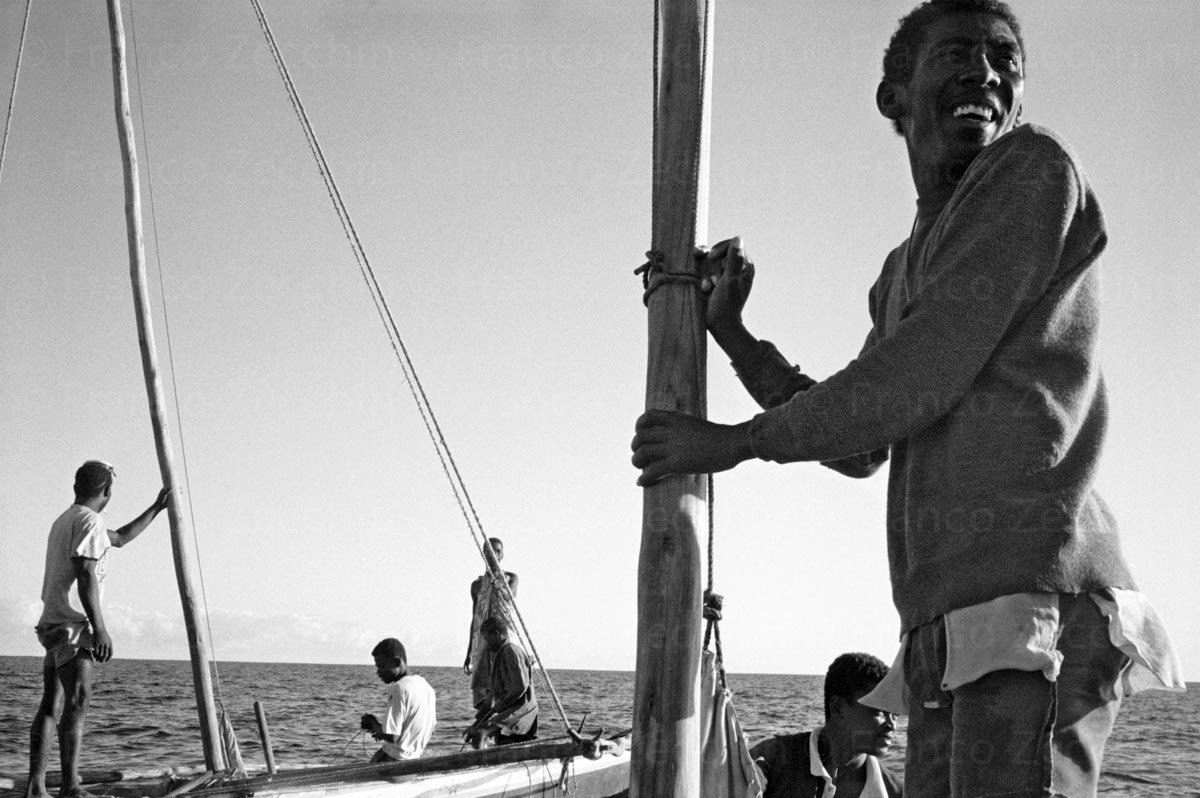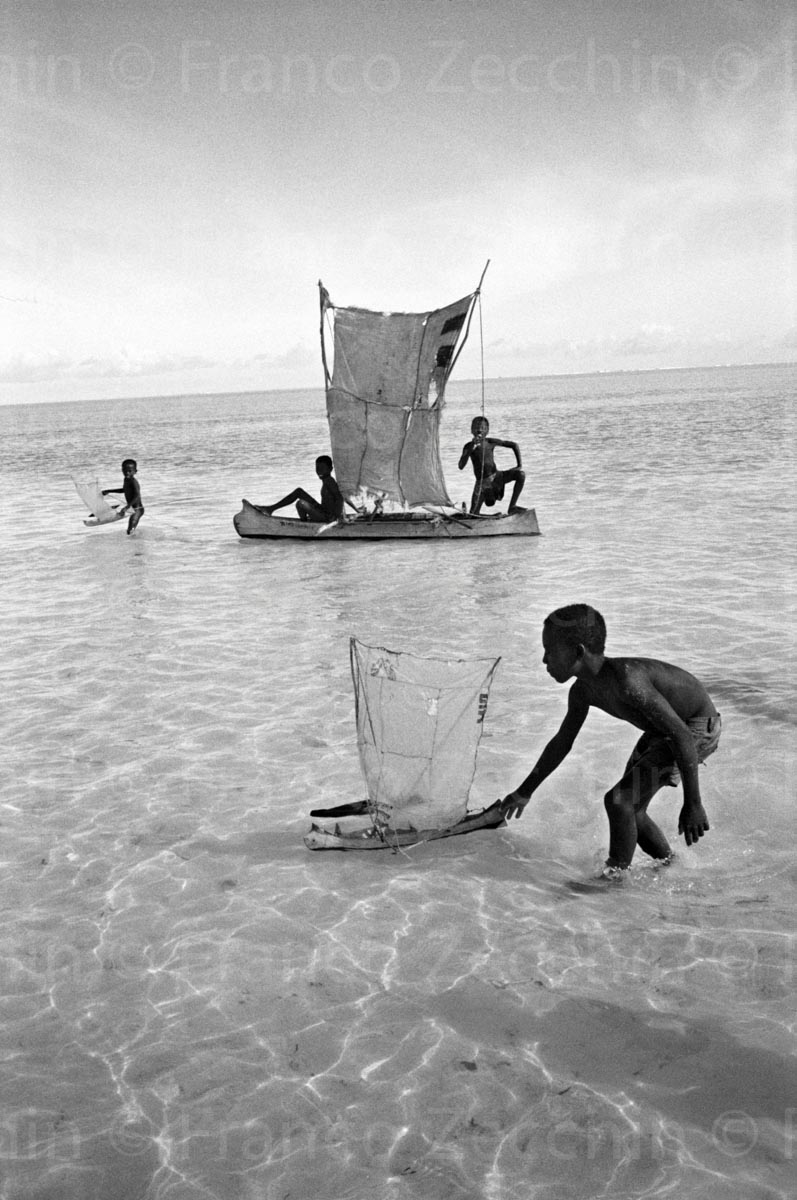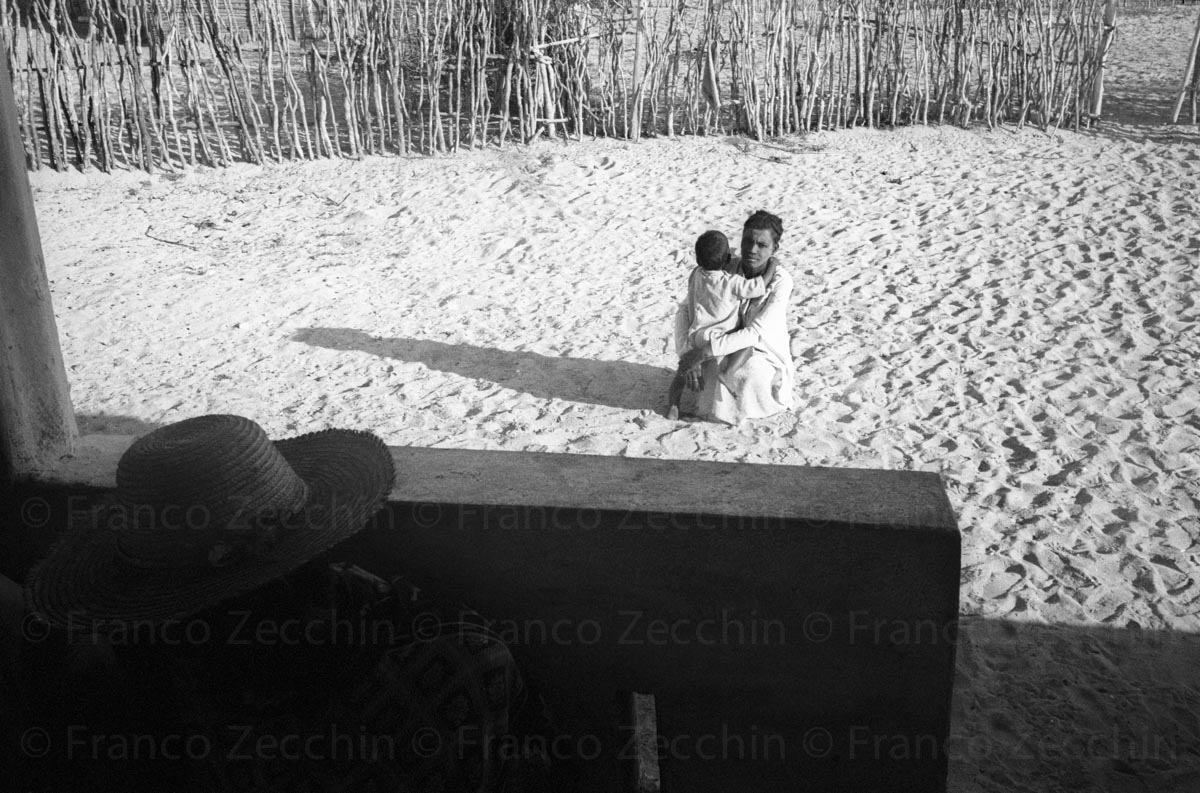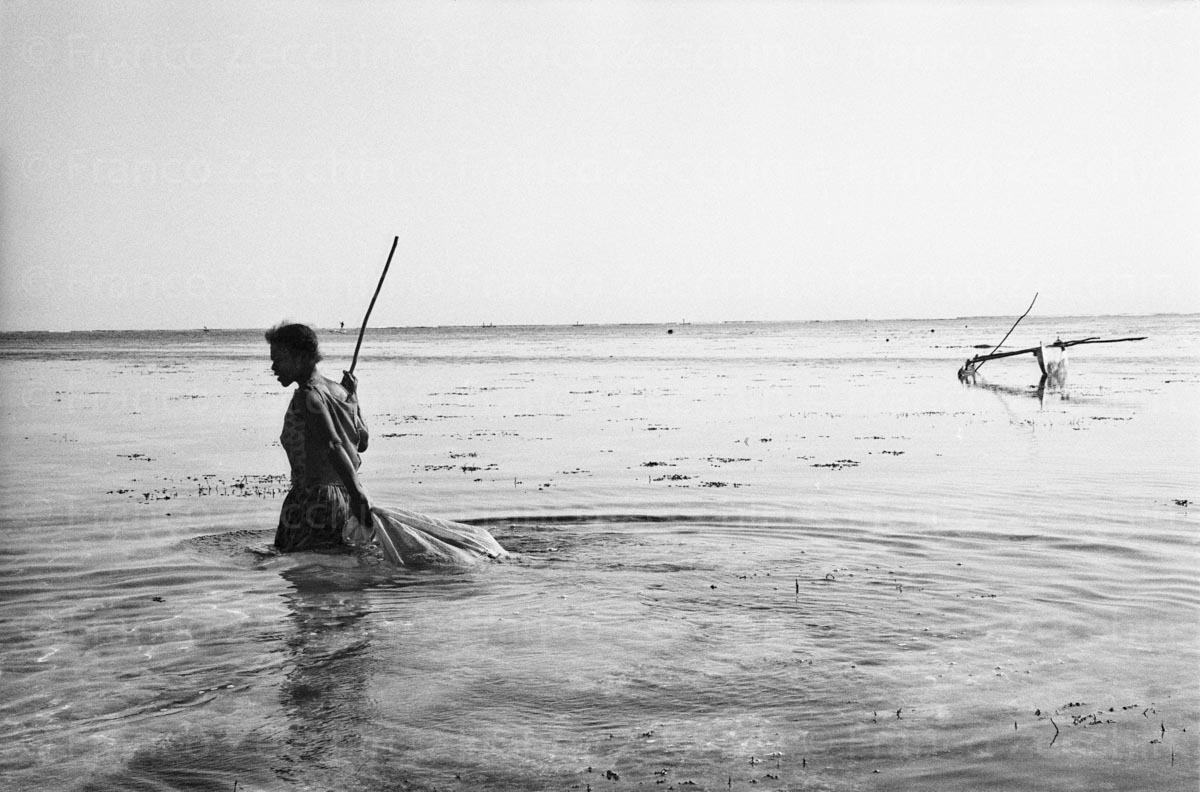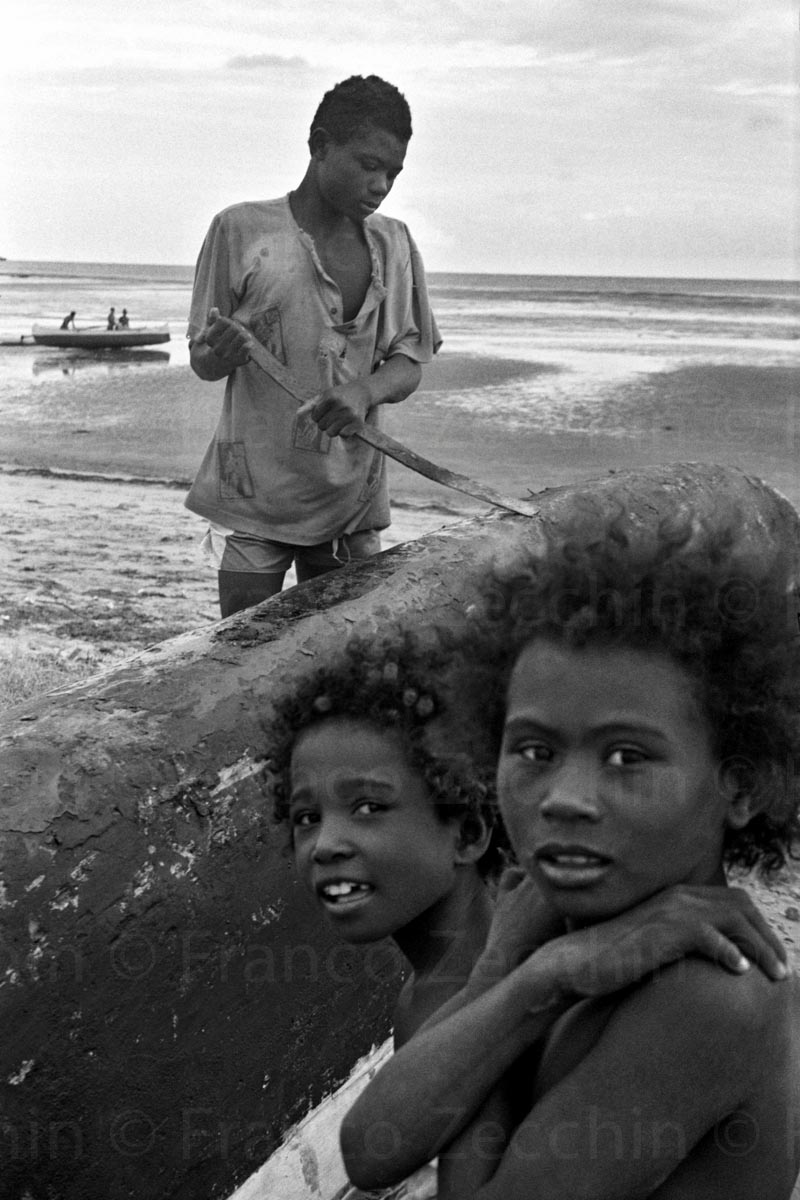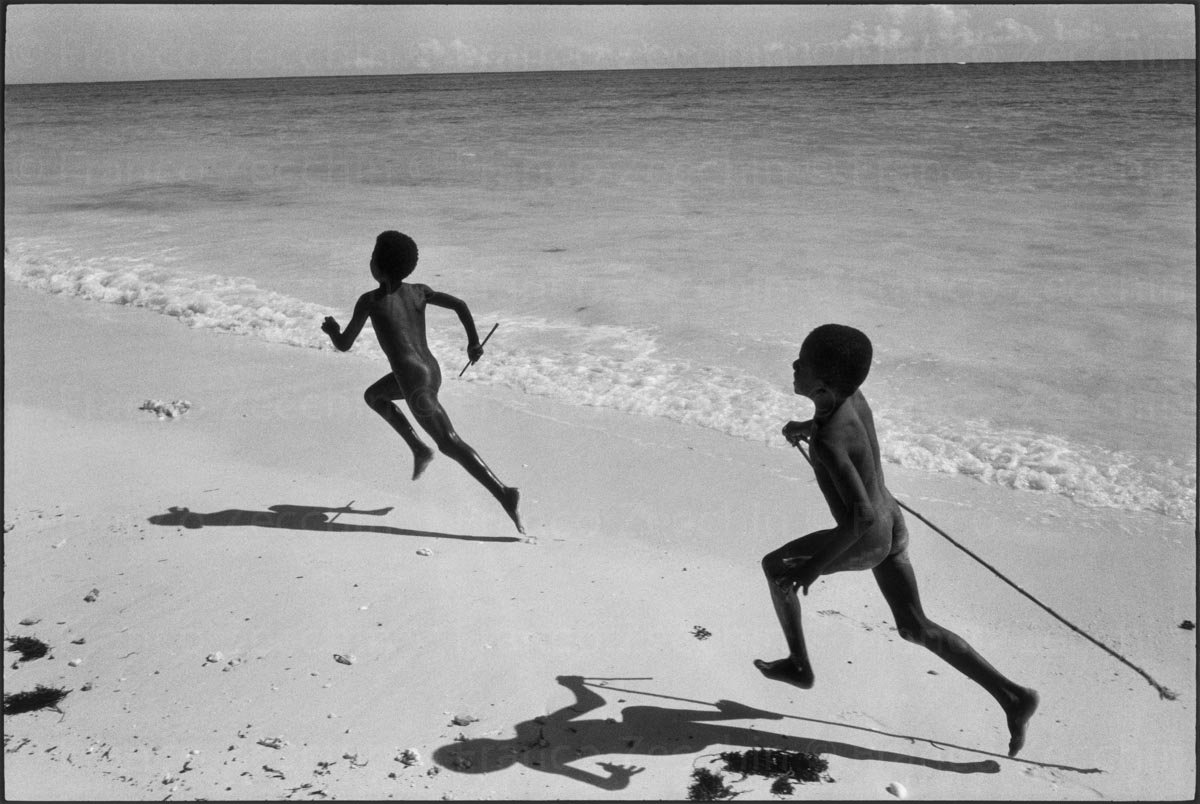
Vezos of Madagascar
Vezos live in the semi-dry zone of south-west Madagascar; they are members of a sea nomadic community and they live of gathering, hunting and fishing on the coralline platforms, littoral dune, mangroves and xerophilous forest near a sandy open coast. There are about 8.000 Vezos, they belong to the Sakalava ethnic group, they inhabit camps under sail-tents and wood hut, they move with passe-partout pirogues.
It is interesting the complex network of interactions between the different constitutive elements of Vezo’s community: the ethic and social organization; the techniques of acquiring the indispensable products; the communication techniques with supernatural, ancestors and divinities. Manual ability due to their way of life is another reason that makes them attractive. The Vezos have always fascinated people that have been approaching them; the beauty of their thin well-balanced pirogues, pushed by quadrangular sails, strengthens the poetical breeze that surrounds the sea nomadism.
Their social organization is based on the extended family, from children to grandparents and allied. The patriarch is a kind of participating technical adviser: he knows the particular productive places, the fresh water points; he decides about the route of the big annual migration, in connection with social economical situation; he supervises relations with the supernatural to solve the « life abnormalities » as diseases, accidents, null rendering from the hunterin-gathering of sea products, etc.. The fight against the « abnormalities » is a very important sector of activities (32% of annual budget versus 42% for food supplying). For the Vezo conception of universe, « abnormalities » are provoked by mistakes against the supernatural, a world which is constituted of different spirits and lineage ancestors that exerts a permanent hidden influence.
Their way of environmental exploitation refuses fishing techniques that can put in danger their ideology, their symbolic naval technology, the ecological balance of their environment. The product of profitable fishing, practised with modern means, that can make high profits, is considered by Vezos as unhealthy, « warm ». When someone becomes rich too fast, he becomes « warm », that is more vulnerable, and the risk of falling or dying, considerably increases. A pure nomad is a poor nomad. Poverty is accepted, even claimed. The true richness, in the Vezo’s life, are children. The predilection for the progeny is very marked.
The agility of nomad society, hits ability to integrate different cultures without losing their own, is a cultural strength.
Ref. 15460-24
Ref. 15481-0
Ref. 15483-34
Ref. 15484-30
Ref. 15456-9
Ref. 15468-22
Ref. 15473-6
Ref. 15478-16
Ref. 15485-12
Ref. 15487-7
Ref. 15490-25
Ref. 15497-29
Ref. 15498-13
Ref. 15498-21
Ref. 15501-21
Ref. 15504-8
Ref. 15504-18
Ref. 15506-24
Ref. 15507-23
Ref. 15510-10
Ref. 15508-16
Ref. 15516-25
Ref. 15521-1
Ref. 15454-12
